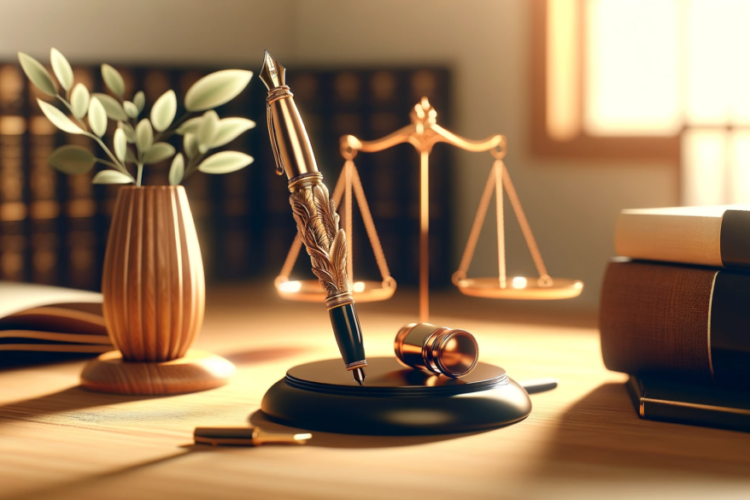Navigating the complexities of bankruptcy can be a daunting task, which is where we come in. Our experienced bankruptcy lawyers are dedicated to providing the legal representation you need during these challenging times. From the initial consultation to the resolution of your case, we are committed to helping you achieve debt relief and a fresh start.
Choosing the right bankruptcy lawyer is crucial. It can make the difference between a smooth process and a prolonged ordeal. We offer strategic advice and skilled representation, ensuring that your rights are protected and your interests are meticulously pursued.
Whether you are considering filing for bankruptcy or require guidance on how to manage overwhelming debt, our team is here to support you. Our goal is to empower you with the knowledge and resources necessary to move forward confidently towards financial stability. Learn more about bankruptcy lawyer
Understanding Bankruptcy
Bankruptcy provides individuals and businesses with key solutions for managing overwhelming debt through legal protections and structured repayment plans.
Types of Bankruptcy
The main types of bankruptcy include Chapter 7, Chapter 13, and Chapter 11.
Chapter 7 bankruptcy allows for the liquidation of non-exempt assets to pay off creditors, offering a relief option for those with limited income. This type results in discharge of many unsecured debts like credit cards and medical bills.
Chapter 13 bankruptcy provides a repayment plan for individuals with regular income, letting them pay back debts over three to five years. This helps in avoiding foreclosure and retaining significant assets, providing a fresh start through manageable payments.
Chapter 11 bankruptcy primarily serves businesses, allowing them to reorganize their debts while continuing operations. Both large corporations and smaller businesses can employ this type, focusing on restructuring without liquidating assets.
The Bankruptcy Process
Filing for bankruptcy initiates several key steps aimed at providing debt relief and legal protection.
First, individuals or businesses must file a petition with the bankruptcy court. This process requires careful documentation of assets, debts, income, and expenses.
An automatic stay takes effect immediately upon filing, halting creditor actions such as foreclosure and wage garnishment. This offers immediate relief and breathing room for debtors.
A trustee is then appointed to oversee the case, ensuring proper handling of assets and payments to creditors. The trustee plays a crucial role in verifying the accuracy of the debtor’s financial information and administering the bankruptcy estate.
Finally, debts are either discharged or restructured depending on the bankruptcy type, providing the debtor with a path to financial stability.
Assets and Debts
Understanding how assets and debts are handled in bankruptcy is crucial.
Assets are classified into exempt and non-exempt categories. Exempt assets, like primary residences and essential personal property, are typically protected from liquidation. Non-exempt assets may be sold to pay creditors in a Chapter 7 case.
Debts are divided into secured and unsecured categories. Secured debts, such as mortgages and car loans, have collateral backing, while unsecured debts include credit cards and medical bills.
Certain debts may not be dischargeable, including student loans, child support, and recent tax obligations. Navigating these distinctions requires the expertise of a chapter 13 bankruptcy attorney for student loans to ensure proper categorization and handling for optimal debt relief.
Choosing a Bankruptcy Lawyer
Choosing the right bankruptcy lawyer requires careful consideration of several factors, including qualifications, services provided, and geographic location.
Criteria for Selection
When selecting a bankruptcy attorney, it’s essential to look for experience and expertise in bankruptcy law, as well as client reviews and awards and recognition in the field.
Ethical standards and years of practice should be considered to ensure reliable and trustworthy legal counsel. Law firms and boutique law firms specializing in bankruptcy cases often provide more focused and customized services. It’s also important to assess the lawyer’s effectiveness in handling bankruptcy litigation, arbitration & mediation, and creditor representation.
Legal Services Offered
Bankruptcy lawyers offer a variety of services such as foreclosure defense, creditor harassment protection, and arbitration & mediation. These attorneys manage cases involving collections, probate, and estate planning.
They assist in bankruptcy litigation and civil litigation to help you navigate through complicated legal processes. Many offer flexible payment plans to accommodate different financial situations, ensuring you receive experienced legal counsel without overwhelming expenses.
Geographical Considerations
The location of the lawyer plays a significant role. It’s advisable to choose a lawyer who is familiar with local laws and court systems in New York, Los Angeles, CA, New Jersey, and surrounding areas like the Central District of California and District of New Jersey.
This local expertise can be particularly useful for handling foreclosure defense and creditor harassment cases. Lawyers practicing in these areas are more likely to understand specific local regulations and can provide tailored strategies to protect your property and assets.

